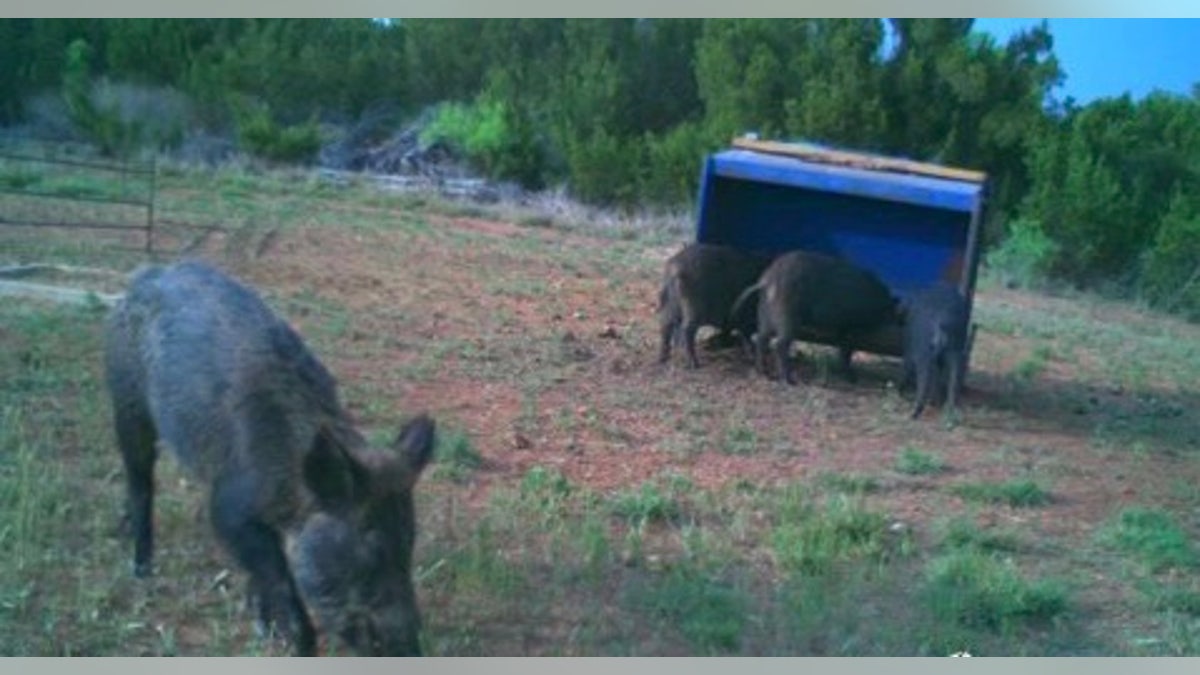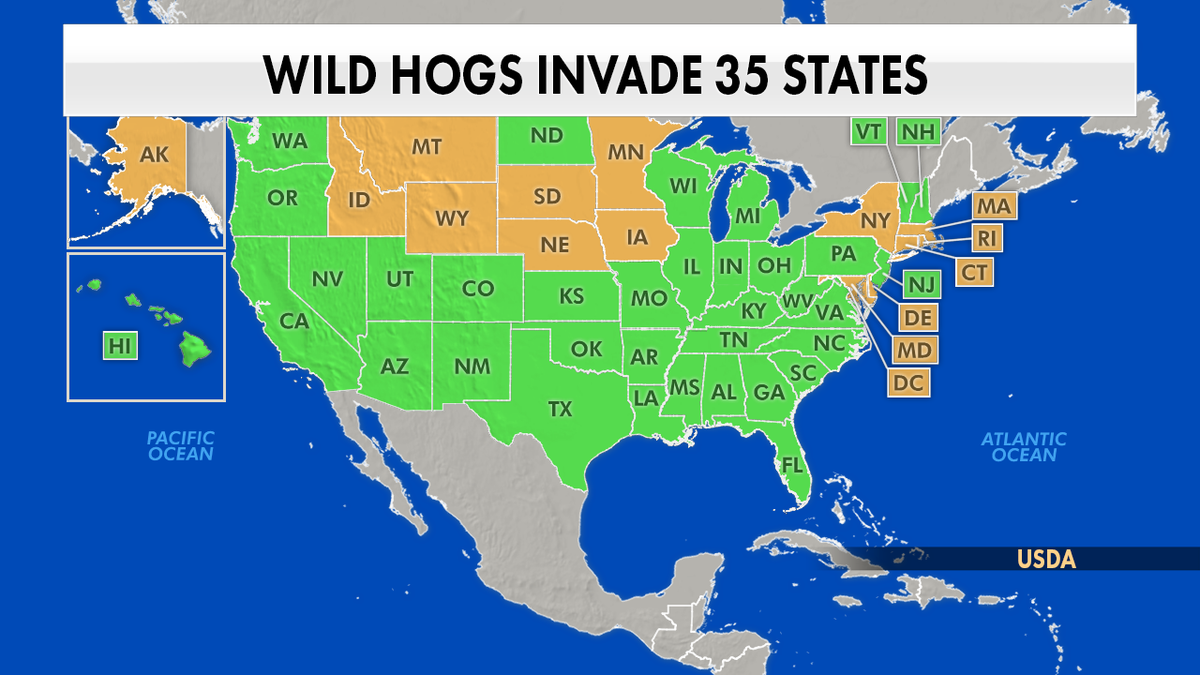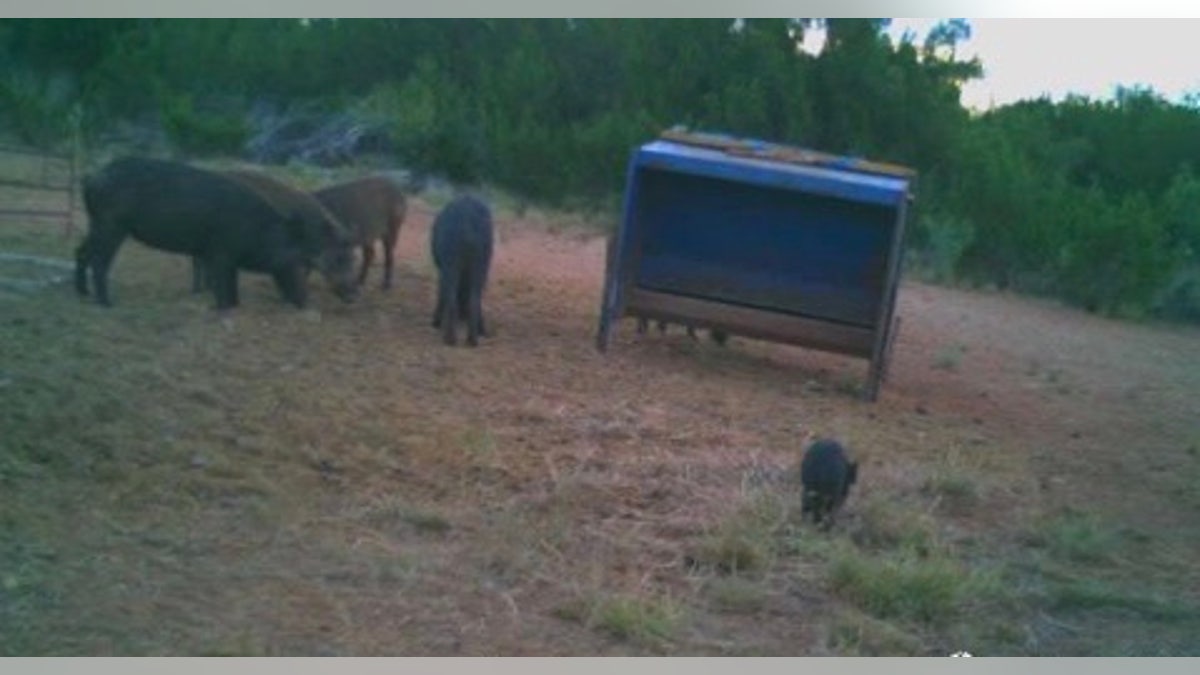U.S. Department of Agriculture warns of ’Swine Bomb’
The Texas Farm bureau says if the state doesn't get the problem under control, the population of hogs could more than double within the next year and the same could be said for the rest of the country which loses and estimated 1.5-billion-dollars a year to damage caused by wild hogs.
RUNGE, Texas – The U.S. Department of Agriculture is warning about a “swine bomb” in America, amid a rapid increase in the country’s wild hog population.
The department has estimated that over 9 million feral hogs have been reported in 35 states across the country – and Texas has the most.
The state has documented hogs in all but one of its counties.
Recent research in the state has shown “we have over 2.5 million hogs at the very least,” Tracy Tomascik with the Texas Farm Bureau said. “In the matter of a year, one female can produce 50 to 100 hogs.”
Zachary Yanta, a Texas rancher and owner of Yanta Beef, said he knows this threat all too well.

Texas rancher Zachary Yanta said he loses over 30% of his crop to wild hog damage every year.
“I grew up on a ranch and as a young boy I just rode around with my dad on the property and developed a lot of interest in what was going on with the animals and with the crops,” Yanta said. “From a young kid, I just know this was what I wanted to do for the rest of my life.”
The fifth-generation rancher has raised beef, corn, cotton and hay. The demanding operation has become even more difficult as the feral hog population has boomed in Texas.
“We have had many encounters with feral hogs and a number of years ago, it was not the problem that it is today,” Yanta said. “It’s not uncommon at all for us to lose 30, 35, 40% of our crops to wild hogs and, you know, we can’t stand that anymore.”
The Agriculture Department has estimated the country loses roughly $1.5 billion each year to damage caused by wild hogs.

The U.S. Department of Agriculture reports 35 states have documented appearances of wild hogs.
“They actively forage on crops that are common across the state like corn, wheat, oats and rice,” Tomascik said. “As a species, they are not very specific on what they will eat so as an invasive species they affect young cattle, sheep and goats.”
Since 2014, the Lone Star State has invested nearly $20 million in trying to control the growing population.
“The state has been a partner in this challenge for a long time, but it is a long and slow battle,” Tomascik said. “There are different trapping and hunting cooperative efforts across the state, but unfortunately, it hasn’t led to any substantial slowdown in the growth of this species.”
The state also has been getting federal support from USDA Wildlife Services.
Texas has allowed for year-round hog hunting to help slow the growth of the wild hogs, but the coronavirus pandemic has left a lot of feral hog hunters inside.

The COVID-19 pandemic has closed a lot of hog hunting businesses for the time being.
“Since folks are staying home, businesses that facilitate that hunting side of things have slowed down over the last six to eight months, that has had a negative effect on the ability to get out and help control the population,” Tomascik said.
As of now, the state has blocked the use of toxicants or anything else used to poison hogs, but the Texas Farm Bureau has been working to change that. Officials there said they wanted access to anything that could help Texas farmers and ranchers.
DOWNLOAD THE FOX NEWS APP HERE
“We are trying to overcome a challenge in Texas that started back in 2017 that prevents the research or the implementation of a toxicant that is approved for use right now,” Tomascik said. “We are supportive of opening up all approved control methods.”
The Environmental Protection Agency has been reviewing the use of sodium nitrite on wild pigs. An application was submitted to the agency in 2016.











































